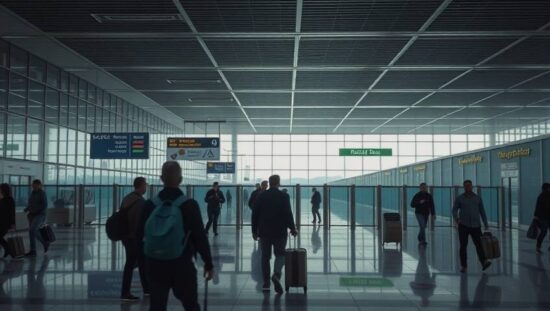The German government’s decision to evacuate former local forces from Afghanistan after the fall of Kabul not only cost the taxpayer a lot of money, but also caused trouble with the airlines. This is revealed in a report by the Welt, citing internal documents.
The reason: The Afghans who were flown out by the German government damaged or trashed planes or ignored instructions. According to documents from the Federal Ministry for Economic Cooperation and Development, the airlines repeatedly complained to the Gesellschaft für Internationale Zusammenarbeit (GIZ), responsible for the evacuation, about the problems.
In the summer of 2002, the complaints reached a peak. A person in charge of the charter flights noted: “There were problems with passengers on all of the last six flights. . It’s always just a minority, but the rate is too high.” The frequency of damage reports was “absolutely striking and must be broken.”
At the peak of the developments, the airlines even threatened not to transport any more Afghans.
In a document, a responsible official warned that in the past few weeks, airlines had complained that “our protected people left a lot of trash behind on the planes.” Crew instructions were also being ignored, “smoking on board, etc.” he noted. One of the airlines had even demanded that a responsible person from the GIZ be on board. The official commented: “I think we need to take a firmer tone.”
However, the attempts to solve the problem apparently did not succeed. For example, GIZ employees suggested creating a flight brochure to be distributed to the passengers. It reads: “This plane will be used for flights to other destinations immediately after the evacuation flight. We kindly ask you to leave the plane in a state that allows further use without an intensive cleaning and maintenance of the cabin. . Thank you!”
The proposal to engage “respect persons” for flights was not pursued due to a lack of suitable staff. A GIZ spokesperson told the Welt am Sonntag that the organization had “immediately responded” to the incidents. Passengers were reminded of the behavior rules at the airport, and allegedly, there were no further complaints later on.
The charter flights had cost the German government millions of euros: According to the Spiegel, the Lufthansa received around five million euros for 17 trips via Tashkent. The evacuation in August 2021 cost almost 20 million euros – a result of the inadequate preparations for the fall of Kabul, which the German government had not foreseen.
In the further course, more than 48,000 Afghans received a residence permit in Germany, including at least 25,000 former local forces and their relatives. Unlike often depicted, the departure was not due to a proven concrete threat to the local forces. The Military Counterintelligence Service (MAD) wrote in April 2021 that at that time, two-thirds of the German military’s local forces lived in areas controlled by the Taliban. “A targeted selection, kidnapping, or killing of the local forces could not be established so far.” The majority of those who had requested a departure in the past wanted to leave Afghanistan to achieve better living conditions.
After the Taliban takeover, the Taliban also issued an amnesty for local forces. In the parliamentary inquiry, a GIZ employee even stated in response to a question from a Green MP: “Well, that’s probably hard for some to accept – the Taliban do hold to what they say.” In the past two years, “they have not persecuted one of us.





